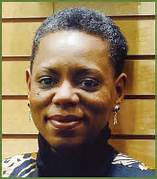Nonfiction can feel like a stepchild of children’s literature. When we look at numbers that relate how few books are written by American Indians and authors of color we’re only considering works of fiction. Sometimes there are no clear lines between these genres. Memoirs can be fiction (Brown Girl Dreaming; Woodson) or nonfiction (Becoming Maria). The list of poetry titles that Nikki Grimes mention yesterday contained works based both in fact and in fiction. Today’s interview is with Tonya Bolden and is about the art of nonfiction writing.
How has writing nonfiction for children changed over the past few years?
It’s been moving farther and farther away from “just the facts.” Increasingly we are  given more freedom in terms of storytelling, allowed—even expected—to use techniques of fiction and to even break some rules now and then so that the prose can flow. Editors are open to creativity—so long as we writers don’t misrepresent the facts.
given more freedom in terms of storytelling, allowed—even expected—to use techniques of fiction and to even break some rules now and then so that the prose can flow. Editors are open to creativity—so long as we writers don’t misrepresent the facts.
Are there as few American Indian and people of color writing nonfiction as it seems?
If yes: Do you have any idea why? If no: How can we find them?
I believe your perception is correct. As for why, there is no one answer. For example, more than a few black writers of nonfiction who were household names when I entered the field are now deceased. Others are in retirement or semi-retirement. The ranks have not been replenished. Why? In part because of the shorter shelf life: often if a first or first and second book does poorly, a writer doesn’t get another shot. The demands of publishing are now such that editors do not have the time/liberty to develop talent as in the days of yore. But your question reminds me of something Dr. Johnnetta B. Cole once heard a man say, “There will be no more prizes for predicting rain. It’s time to build some arks!” If people want more nonfiction by people of color, they must support the people of color who are writing nonfiction now. As Vanesse Lloyd-Sgambati, founder of The Literary Media and Publishing Consultants says, “Preserve a Legacy, Buy a Book!”
How is reading nonfiction different from reading fiction?
That depends on the writing. If the nonfiction is dry and uninspired then I imagine the reader will be merely gathering information. If the nonfiction reads like fiction, the reader will be engaged—caught up in a life or a time—and leave the book with more than information.
How did you know that you wanted to write nonfiction?
I didn’t until I wrote And Not Afraid to Dare: The Stories of Ten African American Women (1998). Scholastic editor Ann Reit suggested the idea. I was game—especially as I was just starting out. By the time I finished the book I was absolutely hooked on nonfiction. In part because I love learning. In part because I hungered to give young people the kind of history I never had. History not simple. History with complexities and contradictions. History with some life to it, texture, vigor and vim.
What can we expect from you in 2016?
Pubbing on February 16: This Kid Can Fly (Balzer + Bray), the memoir of an amazing young man, Aaron Philip, soon to turn fifteen. Aaron has cerebral palsy and has endured countless hardships. But he is such an overcomer! Working with Aaron on his memoir was eye-opening and humbling. In the fall: How to Build a Museum (Viking), the story of the Smithsonian’s National Museum of African American History and Culture, scheduled to open this fall—the last museum to be built on the National Mall. Talk about right up my alley! What an honor it was to write this book, to be connected to this history in the making.
Tonya Bolden is an award winning author of more than 20 books. She is a gifted writer and educator who truly values the learning process. Connect with her on Twitter at @tonyaboldenbook
Tonya’s books include the following.
Beautiful Moon (Fiction)
Maritcha: A Nineteenth-Century American Girl
Winner, 2006 Coretta Scott King Author Honor Award
Winner, 2006 James Madison Book Award
M.L.K.: The Journey of a King
Winner, 2008 National Council of Teachers of English (NCTE) Orbis Pictus
Award for Outstanding Nonfiction for Children
33 Things Every Girl Should Know: Stories, Songs, poems, and Smart Talk by 33 Extraordinary Women
Twelve Days of New York
Searching for Sarah Rector: The Richest Black Girl in America
Emancipation Proclamation: Lincoln and the Dawn of Liberty
Carter G. Woodson Award Book
FDR’s Alphabet Soup: New Deal America 1932-1939
Finding Family (Fiction)
Wake Up Our Souls: A Celebration of African American Artists
Tell All the Children Our Story: Memories and Mementos of Being Young and Black in America

[…] https://campbele.wordpress.com/2016/02/03/writers-on-writingnonfictiontonya-bolden/ […]
LikeLike